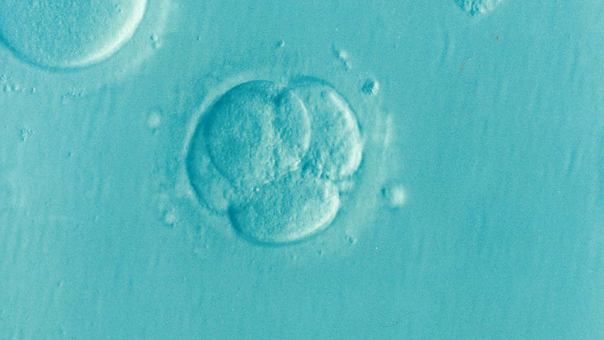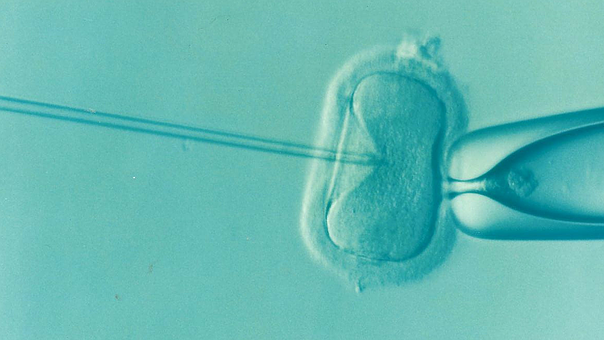In order for a pregnancy to occur naturally, the ovary releases an egg at ovulation which travels through the Fallopian tube where it meets the sperm and is then fertilized. The fertilized egg enters the uterine cavity where it implants in the thickened lining of the uterus (the endometrium).
Through IVF treatment (In Vitro Fertilisation), the ovaries are stimulated to produce a number of eggs which are then collected and mixed with sperm in the laboratory; this then allows fertilization to occur. The developing embryos are monitored closely and the healthiest embryos are then transferred into the uterus to allow implantation to occur.
IVF is a series of procedures performed to treat infertility especially to women over the age of 40. It can also be used as a treatment for certain health conditions such as Ovulation Disorder, Premature Ovarian Failure, Fallopian Tube Damage, Endometriosis, Unexplained Infertility, Uterine Fibroids, Impaired sperm production or function, Previous tubal sterilization or removal, Genetic Disorder or Fertility preservation for cancer patients.

The Procedure
Contents
IVF is a long process and may take several months to be complete. Although this procedure will increase your chances of getting pregnant, there’s still no guarantee that it will all be effective to all.
Before performing IVF procedures, you and your partner must first undergo a series of tests such as Semen analysis, Ovarian reserve testing, Infectious disease screening, Mock embryo transfer, and Uterine cavity exam.
After the screening, both of you will now undergo IVF procedures:
Fertility medications – these are prescribed medications to stimulate your ovaries to increase your egg production. Multiple eggs must be produced because it is expected that some eggs will not develop or be fertilized after retrieval. During this stage, a transvaginal ultrasound is used to check the ovaries and also a blood test will be administered to check your hormone levels.
Your eggs will be collected through minor surgery. This procedure will be done by using the latest ultrasound technology to guide a needle in each of your ovaries for egg extraction. Usually, propofol-based anesthesia will be used while you undergo the procedure.
Sperm sample – Your partner will now be asked to produce a sperm sample that will be combined with your extracted eggs for fertilization. If you will be using donated sperm, it will be removed from being frozen and will be prepared the same way.
Insemination – In this procedure, the eggs and sperm will be mixed together and be stored in a laboratory dish to undergo fertilization. If in case there is a low possibility of fertilization, intracytoplasmic sperm injection (ICSI) may be used. By doing this, a single sperm will be directly injected into the egg; the eggs will be closely monitored if fertilization will occur.
Embryo Transfer– Once fertilization is successful, cell division will take place; fertilized eggs are now called embryos. These embryos will now be transferred to your uterus 3-5 days upon egg retrieval and fertilization. For women under 40, one or two embryos can be transferred and for women aged 40 and above, a maximum of 3 embryos can be transferred. The number of embryos to be transferred must be restricted to prevent the risks of multiple births.

Length of Stay in Destination
Although it is advisable that you will need to take it easy after the embryo transfer, some women are able to resume their normal daily routine after the procedure. Note that your scheduled follow-up checkups with your surgeon are essential to your recovery and healing and you will be expected to stay local for 10-12 days. However, you must also be aware of its possible side effects:
- Passing a small amount of fluid (may be clear or blood-tinged) after the procedure
- Mild cramping and/or bloating
- Constipation
- Breast Tenderness
Recovery Time
12 days after egg retrieval, your doctor will test your blood to check if you are pregnant. So you will need to stay within the area for a little longer after IVF to ensure all procedures are fully successful.
Aftercare
Counseling is very important when you are having IVF; everyone must fully understand that not all IVF procedures have successful outcomes. It is highly recommended that couples should have proper counseling during and after IVF treatment.
Success Rate
The success rate of IVF depends on several factors: maternal age, lifestyle, the cause of infertility and your reproductive history. 40% of Women under the age of 35 will be successful and 25% of women aged 36 to 41 will be successful and only 4% over the age of 42 will be successful. You must also understand that pregnancy rates are not exactly the same as the live birth rate.
Furthermore, you also need to know that there are possible risks associated with IVF.
Symptoms may be as follows:
- Nausea or Vomiting
- Shortness of breathing
- Faintness
- Severe Stomach pains and bloating
- Ten-pound weight gain within 3-5 days
Alternatives to In Vitro Fertilization (IVF) Procedure
In Vitro Fertilization is not the only possible treatment for infertility. Other fertility treatments to consider may include:
Intrauterine Insemination – commonly known as artificial insemination. In this procedure, sperm is inserted via the cervix into your uterus when you’re ovulating.
Surgery – in some cases both male and female must undergo a corrective surgical procedure if their reproductive organs are the one causing fertility issues. Such corrective surgical options can help without the need for other infertility treatments.
Lifestyle changes – instead of undergoing any infertility treatment, your fertility specialist may suggest that you make a series of lifestyle changes that may be causing such problems. This may involve weight reduction, reducing alcohol consumption and quitting smoking.
For an in-depth analysis of the IVF procedure, watch this short video
To check prices or to book an IVF Procedure in Thailand or anywhere else in the world, head on over to MyMediTravel now!

